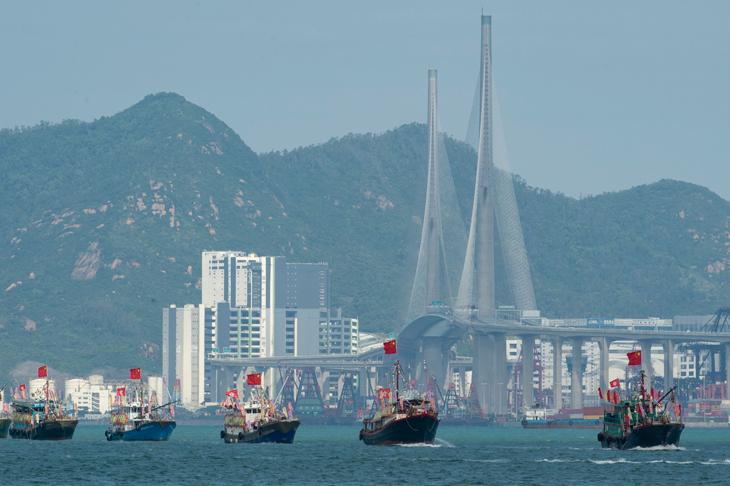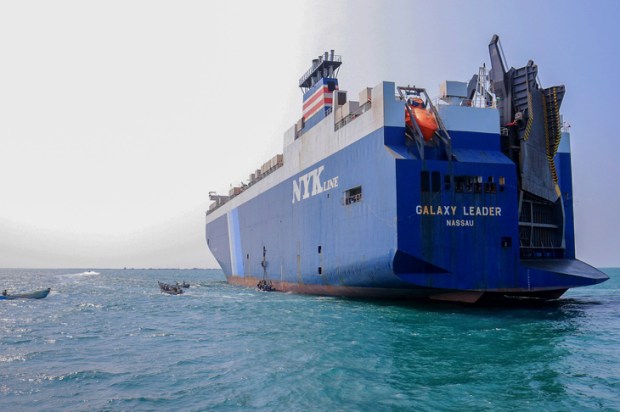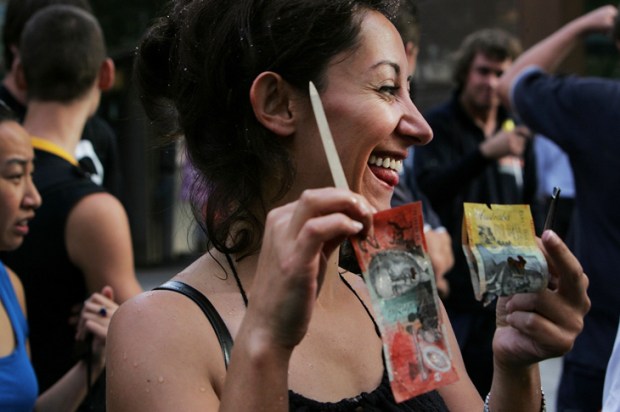The poisoned tip of China’s maritime spear is its massive armed fishing militia, notorious for swarming other nation’s economic waters such as the Philippines, Vietnam and Indonesia, and now potentially the Solomon Islands. Their mission is to expand China’s area of denial masquerading as civilian-only enterprises. It is a maritime version of grey-zone warfare. They present a wicked problem for Australia. It’s one thing to call out another country’s battleship ‘hugging’ Australia’s territorial waters, it’s another to deal with non-naval fishing boats. It is unclear how we would deal with hundreds of these maritime mercenaries swarming towards or within Australian waters.
Following on the heels of the Solomon Islands-China security deal was a draft maritime cooperation agreement stating both countries will co-operate to build deep-sea fishing bases – ‘a shared maritime community’. I’m not sure how China will be sharing anything of their maritime environment. A 1988 agreement between Australia and the Solomon Islands established clear maritime boundaries. Article 1 states, ‘Seaward of Australian reefs in the Coral Sea on the one hand and Solomon Islands reefs on the other hand, the line of delimitation between the Australian Fishing Zone and the Solomon Islands Exclusive Economic Zone and between areas of continental shelf over which each State respectively exercises sovereign rights in accordance with international law’. It is conceivable this area would become part of China’s new maritime community exploited by their fishing militia. The fishing militia’s application is very much like T.E. Lawrence’s deployment of the Arab tribes against the Turks during the first world war. They offered no front or back and their swarming nature had the potential to confine defenders to fixed, isolated positions.
These state-sponsored maritime mercenaries form part of the People’s Armed Forces Maritime Militia. Based at China’s Hainan Island, the fishing fleet receives everything from military training, weapons and fuel subsidies. They also train with the People’s Liberation Army Navy. They are part of China’s power projection deployed to take territory and target anyone challenging China’s claim to the whole of the South China Sea. In August 2020, over a hundred of these fishing boats were harassing the Japanese-administered Senkakus Islands. In 2016, two hundred and thirty swarmed the same Japanese Islands. Our region is not the only area being plundered and tested.
The fishing armada has become a global threat. In September 2020, an estimated three hundred and forty Chinese trawlers swarmed into Ecuadorian waters. In 2017, a Chinese trawler was captured in the Galapagos Marine Reserve carrying 300 tons of marine wildlife. While in 2019, the Argentina Coast Guard opened fire on a Chinese vessel fishing in the country’s Exclusive Economic Zone. Apart from being a security threat these vessels are a menace to the oceans.
Australia is yet to be tested. It is one thing to turn back illegal people-smuggling boats, quite another to confront these CCP-controlled sea creatures. Retired US Navy Admiral James Stavridis said in a 2017 paper that the Chinese government is directly militarising the worldwide robbing of ocean resources. Indonesia’s Fishing Minister Susi Pudjiastuti got straight to the point when she described China’s actions as ‘transnational organised crime’.
Conventional military hardware will always remain fundamental to Australia’s national security. Yet hundreds of small boats, armed to the teeth and sporadically mobilising in our northern waters would be more difficult to hit and less costly to lose. They could also be employed to take and hold ground in strategic locations around Papua New Guinea, the Solomons and other near-by jumping-off points. And of course if we push back, you guessed it, they are ‘just fishing’. Let’s not forget Australia has a large number of appeasers, apologists and those who acquiesce to the CCP. The three horsemen of strategic weakness.
The Cold War between the USSR and a US, Western-backed alliance involved over fifty hot conflicts around the world. From the savannahs of Africa, to the jungles of Vietnam and mountains of Afghanistan, both sides fought proxy wars. The fighting was unconventional. Plundering the resources of other economies and swarming into territorial waters are acts of aggression disguised as civilian activities. A cheaper alternative to conventional conflict for opponents of the US and its allies such as Australia is to engineer endless sporadic actions across a variety of terrains. The high seas are just one of those terrains. The future of conflict will be largely based, as it always has been, on the tactics of asymmetric warfare. That’s how the Ukraine is taking it to the Russian forces. History is littered with failures of imagination. The CCP’s deployment of its fishing mercenaries is a good use of their imagination for obscuring the boundary between civilian and military.
When you think about it, the CCP assault is on all fronts. From academia, media, critical infrastructure, agriculture, fisheries, data (now a strategic asset like oil), resources, and intellectual property. For the CCP there is no distinction between civilian and military. And none of this involved even throwing a rock let alone a fancy, multi-million-dollar piece of military hardware. It’s a modern version of WWI French and Supreme Allied Commander Ferdinand Foch’s definition of ‘absolute war’ without the shooting. British security specialist Edward Lucas observed the predominant view of war in the West is that it ‘only occurs when formal or informal forces engage each other using kinetic force’. Hard to believe we are still coming to terms with that concept. In the Science of Guerrilla Warfare, T.E. Lawrence explained conceptually how war as a struggle of two immaterial principles could only end when the supporters of one had no more means of resistance. It was Lawrence’s view that an opinion can be argued with; a conviction is best shot.
Put another way, a bully is often hiding some kind of personal insecurity. The bullying rarely continues when faced with a courageous opponent or one with many allies. It appears confronting the CCP whether on the high seas or elsewhere, requires both approaches. In the meantime, we risk our own security and those of our partners if we dismiss these state-sponsored maritime mercenaries as poor little fishermen.
Got something to add? Join the discussion and comment below.
Get 10 issues for just $10
Subscribe to The Spectator Australia today for the next 10 magazine issues, plus full online access, for just $10.
You might disagree with half of it, but you’ll enjoy reading all of it. Try your first month for free, then just $2 a week for the remainder of your first year.














Comments
Don't miss out
Join the conversation with other Spectator Australia readers. Subscribe to leave a comment.
SUBSCRIBEAlready a subscriber? Log in